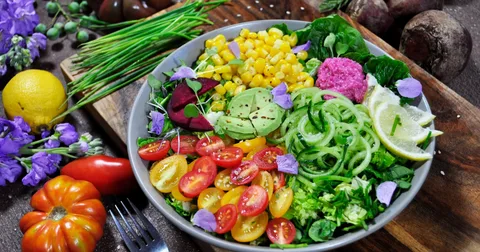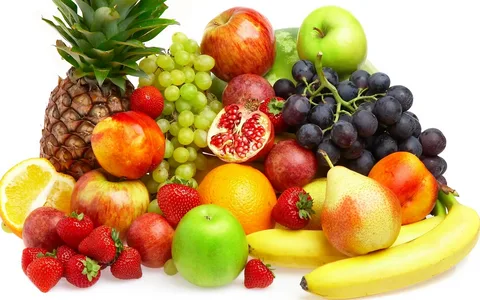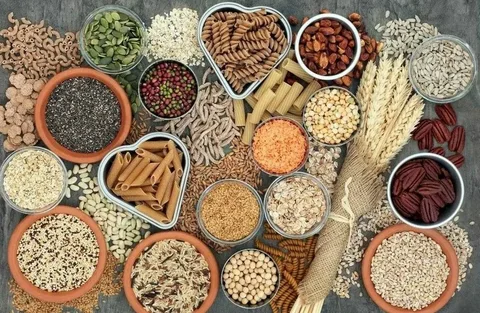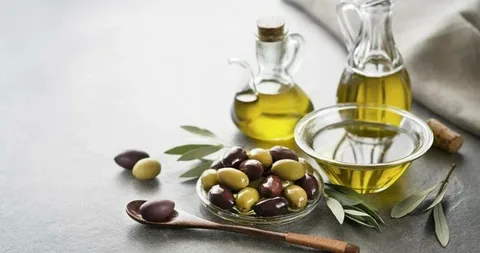What Foods Do You Eat on a Plant-Based Diet?

A plant-based diet centers around whole, unprocessed plant foods that support ultimate health and well-being. Now, if you are considering making this transition, you might wonder, “What do you eat on a plant-based diet?” or “What can I eat on a plant-based diet?” Let me dive in and discuss with you a selection of the nutrient-dense options that fuel your body.
What is a Plant-Based Diet?
The first important thing is to understand what constitutes a plant-based diet. Whenever one is talking about a diet focused on plants, they are mainly referring to one that relies on whole, minimally processed foods derived from plants. Examples of such foods are fruits, vegetables, whole grains, legumes, nuts, and seeds. Even though there are people who adopt a plant-based diet yet still consume small portions of animal-based products, the core and emphasis rely on plant foods.
According to Harvard Health Publishing, a plant-based diet reduces the risk for common diseases: things like heart disease, high blood pressure, type 2 diabetes and certain types of cancers, which include breast cancer. The HealthBeat newsletter often expounds on how a plant-based approach coincides with staying healthy and dealing with chronic conditions such as IBD, or inflammatory bowel disease, or rheumatoid arthritis.
What Can You Eat on a Plant-Based Diet?
One of the best things a plant-based diet involves is the versatility of the foods and their abundance. The major foods derived from this diet are fruits, vegetables, whole grains, legumes, nuts, and seeds. Well, what foods can you eat on a plant-based diet? You will surely enjoy delicious meals full of vitamins, minerals, and antioxidants that guarantee health in the long run. Here is a breakdown:
1. Fruits

Fruits should comprise a major part of your diet. They are rich in vitamins, minerals, antioxidants, and fiber. Some best choices include:
Berries: blueberries, strawberries, raspberries
Citrus fruits: oranges, lemons, grapefruits
Tropical fruits: mangoes, pineapples, bananas
Apples, pears, peaches
These fruits can be consumed fresh, dried with minimum added sugar, or combined into smoothies for a healthy kick-start of your day.
2. Vegetables
The vegetables are the mainstay of any plant-based diet. The trick is incorporating a wide range so that you obtain all the required nutrients. Those to zero in on include:
Leafy greens-spinach, kale, arugula
Cruciferous vegetables (broccoli, cauliflower, Brussels sprouts)
- Root vegetables: carrots, sweet potatoes, beets
- Squash, zucchini, and eggplant
Roasting, steaming, or stir-frying vegetables in healthy oils like olive oil will make them delicious yet full of nutrients.
3. Whole Grains

Whole grains provide essential fiber, vitamins, and minerals. On a plant-based diet, these can be enjoyed in their entirety. Look for:
- Quinoa
- Brown rice
- Oats
- Barley
- Whole grain bread and pasta
Whole grains also help in managing blood sugar and, thus, can be part of a healthy diet for people with long-term conditions like type 2 diabetes.
4. Legumes
Legumes are rich in plant-based protein and fiber. Addition to meals helps in promoting satiety and gut health because of the high content of fiber. Examples are:
Lentils (green, red, yellow)
Chickpeas
Black beans
Kidney beans
Peas
These can be added in soups, stews, salads, or used as the base for plant-based burgers.
5. Nuts and Seeds
Nuts and seeds are a good source of healthy fats, fiber, and protein and are, hence, very important in a plant-based diet. Some good ones include:
- Almonds, walnuts, cashews
- Flaxseeds, chia seeds, hemp seeds
- Sunflower and pumpkin seeds
These can be added into oatmeal, smoothies, salads, or taken as snacks.
6. Plant-Based Oils

Healthy fats can be taken in moderation from plant-based oils, including extra virgin olive oil, coconut oil, and avocado oil. These are highly concentrated with essential fatty acids that are vital for the health of the heart and the general well-being of a person.
Foods to Limit or Avoid
While the focus of the plant-based diet is on what you can eat, there are some foods you want to limit or avoid: processed foods, sugary snacks, and refined grains do not provide the nutrients of whole plant-based foods. Limiting, or even cutting out, animal products-dairy and meats-is another way some stay true to the lifestyle, while others choose to be more flexible.
Health Benefits of a Plant-Based Diet
Opting for plant-based diets is not only a question of what foods you eat, but also of how you take care of your general health. In fact, as noted by Harvard Health Publishing, studies do show that plant-based diets can reduce chronic diseases, such as heart disease, diabetes, and some cancers. HealthBeat-a newsletter of Harvard’s Special Health Reports-outlines how plant-based diets may control Inflammatory Bowel Disease (IBD), Multiple Sclerosis (MS), and Rheumatoid Arthritis.
Also, Healthline points to the benefits for patients with such widespread diseases as Breast Cancer and Migraine, proving that plant-based foods provide anti-inflammatory effects to improve their condition.
What Food Are You Supposed to Eat on a Plant-Based Diet to Stay Healthy?
Now that we have the basics explained, let’s get to how to be healthy. What do you eat on a plant-based diet to maintain long-term health? You can easily maintain an adequate intake by including a different variety of plant foods on a given day. Healthful choices among plant-based foods include:
- Tofu and Tempeh: These are high-protein meat substitutes made from soybeans and prove great in stir-fries, salads, or sandwiches.
Avocados: Packed with healthy heart fats and fiber, these nutritious fruits complement just about any meal. Berries: Full of antioxidants, berries are great for keeping inflammation down and immune health up. Dark Leafy Greens: Spinach, kale, and arugula are packed with vitamins A, C, and K-all important to bone and eye health.
Subscriptions and Resources to Support You Getting Your Greens
If you would like to see what kind of foods you will be eating on a plant-based diet and want to find more information, publications you can subscribe to include HealthBeat and Healthline. Harvard Health Publishing also provides helpful online courses and reports that can help one understand the benefit of plant-based eating in helping curb common health conditions. Whether you’re working to decrease inflammation or trying to determine how you can use diet to fuel your energy level, these resources will have practical tips to lead the way.
Plant-Based Diet FAQs
What are some foods that are allowed to be consumed on a plant-based diet?
One can consume most fruits, vegetables, whole grains, legumes, nuts, and seeds. These foods constitute the basic element of a plant-based diet, and many nutrients may be derived from them.
Plant-Based Eating: What are the Foods You Can Consume? Such food that one can consume includes plant-based oils, nondairy milk, tofu, and tempeh. These foods are really versatile, and in many recipes, they make sure your diet remains diverse and healthy.
Plant-Based Diet and Health Conditions
Yes! Diet is known based on plant foods for preventing and managing tending health conditions including heart disease, high blood pressure, type 2 diabetes, and certain cancers.
Conclusion
There are a great number of delectable and healthy foods one can consume on a plant-based diet: fruits, vegetables, legumes, nuts, seeds, and whole grains. The options are unlimited. What foods can you eat on a plant-based diet to make sure you stay healthy? Variety is the spice of life, and whole, minimally processed foods provide most of the important nutrients. This way of eating will lead you toward a healthy lifestyle fraught with energy and enabling you to see you through the various health challenges that you may face.
For further information, please refer to reliable resources from Harvard Health Publishing, Healthline, and sign up for HealthBeat to receive tips and news about living healthy on a plant-based diet.
